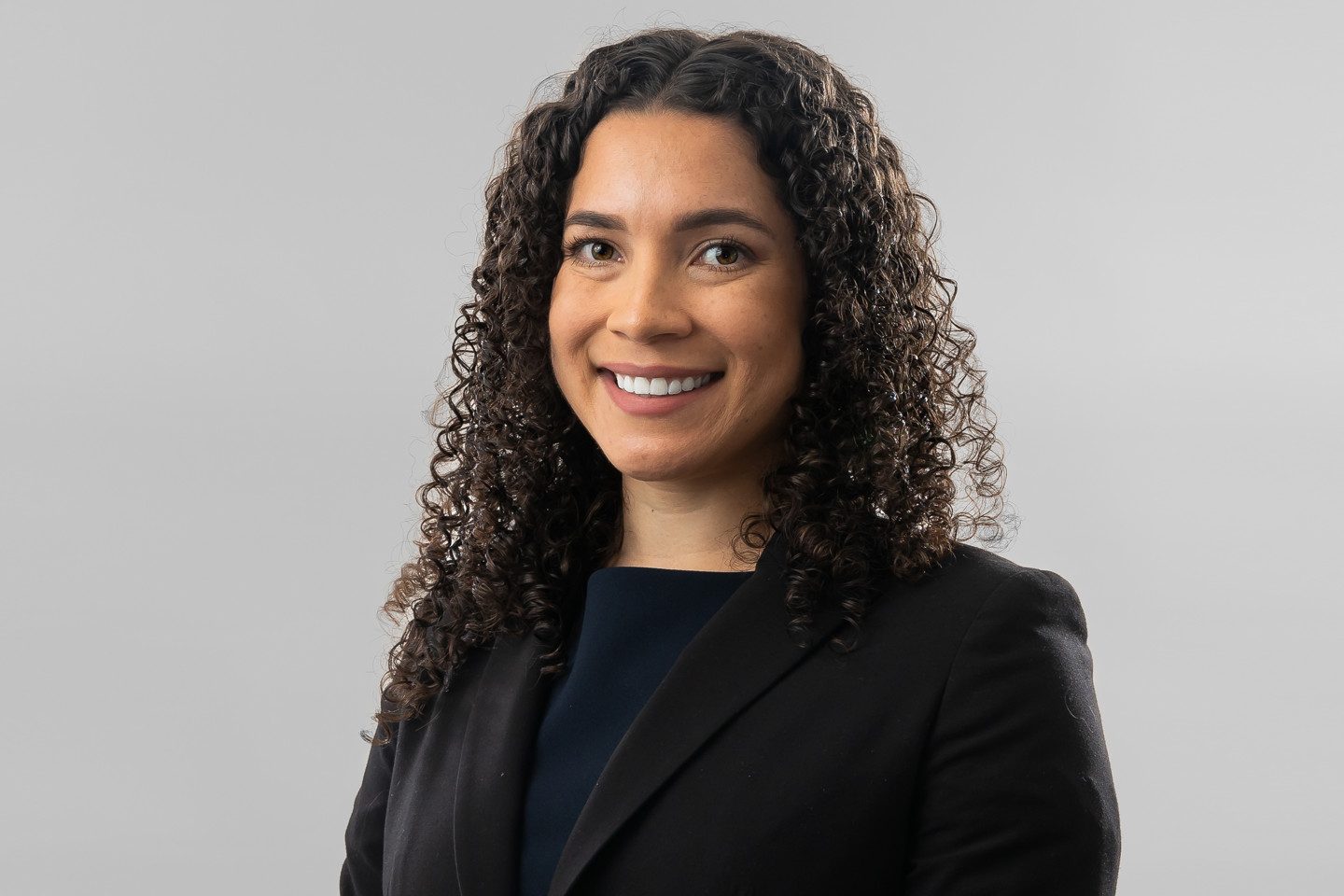
Jeremy Snead
Partner | Legal
London, Cayman Islands, British Virgin Islands

Jeremy Snead
Partner
London, Cayman Islands, British Virgin Islands
Services
We have the expertise to handle the most demanding transactions. Our commercial understanding and experience of working with leading financial institutions, professional advisers and regulatory bodies means we add real value to clients’ businesses.
Sectors
Our sector approach relies on smart collaboration between teams who have a deep understanding of related businesses and industry dynamics. The specific combination of our highly informed experts helps our clients to see around corners.
We have the expertise to handle the most demanding transactions. Our commercial understanding and experience of working with leading financial institutions, professional advisers and regulatory bodies means we add real value to clients’ businesses.
Legal
Corporate and Fiduciary
Consulting
Banking and Finance
Corporate
Dispute Resolution
Employment law
Intellectual Property
Investment Funds
Listing services
Local Legal Services
Ogier Regulatory Consulting
Our sector approach relies on smart collaboration between teams who have a deep understanding of related businesses and industry dynamics. The specific combination of our highly informed experts helps our clients to see around corners.
Ogier provides practical advice on BVI, Cayman Islands, Guernsey, Irish, Jersey and Luxembourg law through our global network of offices across the Asian, Caribbean and European timezones. Ogier is the only firm to advise on this unique combination of laws.
Keep up to date with industry insights, analysis and reviews. Find out about the work of our expert teams and subscribe to receive our newsletters straight to your inbox.
Fresh thinking, sharper opinion.
We get straight to the point, managing complexity to get to the essentials. Our global network of offices covers every time zone.
About us
Corporate social responsibility (CSR)
Diversity, equity and inclusion
Information security
Innovation
Sustainability
No Content Set
Exception:
Website.Models.ViewModels.Components.General.Banners.BannerComponentVm
Insight
10 October 2022
Jersey, British Virgin Islands, Cayman Islands, Guernsey, Hong Kong
4 min read
The UK Supreme Court handed down its decision in BTI v Sequana on 5 October 2022, unanimously dismissing the appeal from the 2019 Court of Appeal decision and confirming how directors duties ought to be applied when a company is in the zone of insolvency. Although decisions of the UK Supreme Court are not binding upon the jurisdictions in which Ogier practises law, it will nevertheless be highly persuasive and influence the approach taken in the offshore jurisdictions that Ogier advises upon.
In the earlier decisions in this case the English High Court and Court of Appeal considered the question: does the duty to act in the best interests of the company require directors to consider and act in the interests of the company's creditors, rather than the shareholders, only when the company becomes insolvent or even before insolvency? If before, at what point in the period when a company approaches, or is at real risk of, insolvency does that duty arise? What is the applicable test?
It is trite law that a director's fiduciary duty to act in good faith in the interests of the company is owed to the company as a whole, not to its stakeholders individually. Historically, the interests of the company has meant the interests of its shareholders as a whole.
In West Mercia Safetywear Ltd (in liquidation) v Dodd [1988] BCLC 250 the English Court of Appeal (applying Antipodean caselaw) accepted for the first time that, once a company is insolvent, the interests of creditors override those of the shareholders since the company's assets practically belong to the creditors who can displace the power of the shareholders and directors to deal with the assets. The creditors effectively become the real stakeholders of the company, entitled to the company's assets on its winding up, whereas the shareholders no longer have any real economic interest in the company. Even though creditors always have an economic interest in the company indebted to them, the significance of that interest grows when a company becomes insolvent or is likely to become insolvent, and the directors' duty to consider those interests should grow accordingly.
Although referring to a "creditor duty" the case did not create a new freestanding duty owed to creditors, but recognised that at the point of insolvency the company's best interests meant the interests of the creditors, which were not necessarily aligned with the interests of the shareholders.
The directors of AWA caused it to distribute a €135m dividend to its sole shareholder, Sequana. At the time AWA was solvent on a balance sheet and cash flow basis but had long term contingent liabilities of an uncertain, but likely substantial, amount. Even though insolvency was not imminent, or even probable, there was a real risk that AWA might become insolvent in the future.
AWA ended up in insolvent administration and BTI, assignee of AWA's claims, alleged that the dividend had been paid to Sequana in breach of the directors' duties to consider and act in the creditors' interests, those interests representing the interests of AWA at that time given its real risk of future insolvency.
The Court of Appeal dismissed BTI's allegation. The Court rejected the suggestion that the duty to have regard to the interests of creditors arose when there was a real, as opposed to a remote, risk of insolvency. They concluded that such a test was too vague and uncertain and acknowledged that the English courts had shied away from a simple formulation directing when the creditor duty would arise.
The Court of Appeal did agree that the duty to consider creditors' interests could be triggered even when a company's circumstances fell short of actual insolvency. It found that such a duty arises when the directors know or should know (thereby adding an element of objectivity) that the company is or is likely to become insolvent. In that context, the Court of Appeal considered that "likely" meant probable. The creditor duty therefore arose if the company was actually insolvent, on the brink of insolvency or probably headed for insolvency. As such, the factual matrix was crucial.
On the facts of the case, as AWA was solvent on a balance sheet and cash flow basis, but had long term contingent liabilities, the Court of Appeal determined that even though there was a real, not remote, risk of insolvency in the future, it was neither imminent nor probable at the time of the dividend payment. It said there was therefore no duty owed to creditors at that time.
On appeal from this decision the Supreme Court had to decide (among other things) whether the trigger for the common law duty to take into account creditors' interests is merely a real risk of, as opposed to a probability of or close proximity to, insolvency and whether the application had survived the codification of directors' duties in the Companies Act 2006, including the doctrine of shareholder ratification. The Supreme Court justices affirmed unanimously that such a change in focus does exist (and was affirmed or preserved by the Companies Act 2006) and once applied any breaches could not be ratified by a decision of the shareholders. The Court was split on the question of the point at which that change would arise, recognising the linear nature of the progress towards insolvency and that on the road to insolvency there would be a point when the interests of both sets of stakeholders would be in conflict and need to be balanced. The majority held that the duty towards creditors was engaged when the directors knew or should have known that the company was insolvent or bordering on insolvent, or that an insolvent liquidation or administration was probable, with the minority leaving open the question of whether it was essential that the directors knew or ought to have known that to be the case. However, the Court unanimously held that the duty was not engaged on the facts of the case as AWA was not actually or imminently insolvent, nor was insolvency even probable, and accordingly dismissed the appeal.
Although director duties have not been codified in most of the offshore jurisdictions, the concept of a duty to take into account creditors' interests has long been recognised in the offshore courts and is supported by the various provisions relating to antecedent transactions seeking to restore assets to an insolvent company, and the BTI v Sequana Court of Appeal summary has been seen as a reflection of the existing legal position in the offshore jurisdictions.[1]
The test upheld by the Supreme Court is therefore likely to be applied when such questions come before the offshore courts in the future.
In carrying out their duties directors should ensure that they remain informed of the company's financial position at all times, taking into account factors that may impact the solvency status of the company, including contingent liabilities. If the company is insolvent or bordering on insolvent the directors must take into account the interests of the creditors (as a whole), even if an insolvency process is not inevitable, balancing their interests against the interests of the shareholders where they may conflict. The path to insolvency will likely not be linear and the greater the financial challenges the company faces, the greater the weight that the directors must give to creditor interests. A shareholder resolution will not be a panacea and factors supporting directors' decisions are likely to be scrutinised. It is therefore as important as it has ever been for directors to seek legal advice at an appropriate time and fully document their decision-making processes.
Read the Supreme Court's press summary: BTI 2014 LLC (Appellant) v Sequana SA and others (Respondents) - Press Summary (supremecourt.uk)
[1] See for example the Cayman Islands Court of Appeal decision of AHAB v Saad 21 December 2021, CICA NO. 15 of 2018

Partner | Legal
London, Cayman Islands, British Virgin Islands

Jeremy Snead
Partner
London, Cayman Islands, British Virgin Islands

Senior Associate | Legal
Cayman Islands

Victoria King
Senior Associate
Cayman Islands

Partner | Legal
Jersey

James Angus
Partner
Jersey

Partner | Legal
Cayman Islands

Marc Kish
Partner
Cayman Islands

Partner | Legal
British Virgin Islands, Jersey

Brian Lacy
Partner
British Virgin Islands, Jersey

Partner | Legal
Cayman Islands

Gemma Bellfield (nee Lardner)
Partner
Cayman Islands

Partner | Legal
Guernsey

Mathew Newman
Partner
Guernsey

Partner 合伙人 | Legal
Hong Kong

Oliver Payne 彭奥礼
Partner 合伙人
Hong Kong

Partner | Legal
Dubai

David Welford
Partner
Dubai

Partner | Legal
Jersey

Nick Williams
Partner
Jersey
Ogier is a professional services firm with the knowledge and expertise to handle the most demanding and complex transactions and provide expert, efficient and cost-effective services to all our clients. We regularly win awards for the quality of our client service, our work and our people.
This client briefing has been prepared for clients and professional associates of Ogier. The information and expressions of opinion which it contains are not intended to be a comprehensive study or to provide legal advice and should not be treated as a substitute for specific advice concerning individual situations.
Regulatory information can be found under Legal Notice
Sign up to receive updates and newsletters from us.
Sign up
No Content Set
Exception:
Website.Models.ViewModels.Blocks.SiteBlocks.CookiePolicySiteBlockVm
